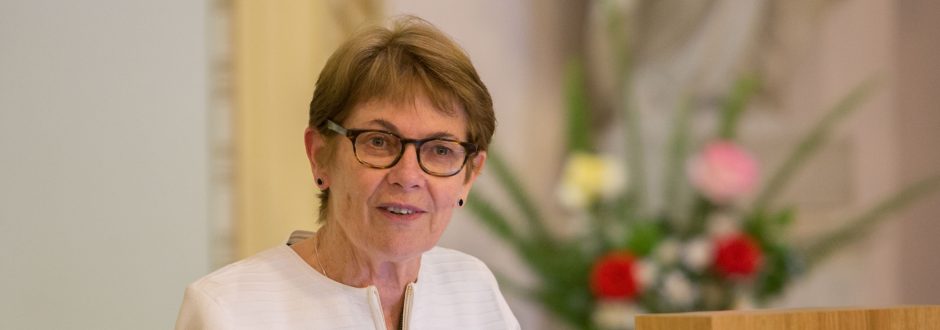There is much we can do within our own neighbourhoods and our own hearts to use the gift of loneliness to address the pain of loneliness, writes Sister Patty Fawkner.
BY Patty Fawkner SGS
It has come to this. In response to what’s been described as an “epidemic of loneliness”, British Prime Minister Theresa May earlier this year appointed Britain’s first ever Minister for Loneliness. Somehow, I can’t see Australia’s PM, Malcolm Turnbull, following suit, even though Australians are as lonely as their British counterparts, according to respected social researcher, Hugh Mackay.
It’s ironic, isn’t it, that the explosion of social media coexists with increasing fragmentation in modern day society? The more ‘connected’ we are with our electronic devices, the more socially and emotionally disconnected we seem to feel.
We are social animals. We need community. But, according to Mackay, never in our evolutionary history, do so many of us live alone. As the incidence of social isolation rises, so do the rates of anxiety and depression.
One of Mackay’s solutions comes straight out of the Good Samaritan tradition – realise the potential of neighbourliness. Chances are that there is somebody who is feeling lonely in my immediate neighbourhood. My reaching out to them, even with a simple smile and a “hello” can go a long way to making them – and myself – feel less lonely.
“We’re like most species on the planet in our deep need of each other, our deep need to feel connected, to feel as though we belong to herds and tribes, neighbourhoods, groups and communities,” observes Mackay.
There are other treasures within the Good Samaritan Benedictine tradition to combat the heartache of loneliness that each of us experiences at different times in our lives. Benedict talks about the good zeal that leads to God and fullness of life, and the bitter zeal which separates from God.
In a similar way there is a loneliness which can be fruitful and lead to God, and a loneliness that can further embitter. There is a loneliness that can reach out to the loneliness of another and a loneliness that can lead to a more isolating self-absorption.
The ancient Persian poet, Hafiz, ‘gets’ this distinction.
“Don’t surrender your loneliness
so quickly.
Let it cut more deep.
Let it ferment and season you
as few human
or even divine ingredients can.
Something missing in my heart tonight
has made my eyes so soft,
my voice
so tender,
my need of God
absolutely
clear.”
Don’t surrender your loneliness so quickly, advises Hafiz. This seems counterintuitive as it is natural to flee from the pain of loneliness. But the substitute or cure can be more dangerous than the malady.
I surrender my loneliness when I distract myself with my devices or when I seek to substitute my loneliness with my addictive behaviour of choice – be that addiction to food, alcohol, gambling, work or gaming. The choices are endless.
Instead of fleeing from loneliness, Hafiz suggests that I enter into it more deeply. “Let it cut more deep. Let it ferment and season you.”
Loneliness can be a gift if I allow it to remind me, in St Augustine’s memorable words, that my heart is restless until it rests in God. I can allow loneliness to be an expression of my powerful yearning for union with God.
Loneliness can be a gift if I allow it to teach me to look with “eyes so soft”. Rather than wallowing in self-pity, loneliness can lead me to be more compassionate and tender with others.
I know the wisdom of Hafiz’s words from my own experience. I recall a time of deep loneliness where I felt totally misunderstood and was aware that others around me seemed to be experiencing real affection. I seemed to be forever missing out.
At this time I came across a prayer addressed to God as “She Who Changes”, by feminist theologian, Carol Christ. A line in the prayer says that “we are precious in Her sight. She understands and remembers us with unending sympathy”. This image of an understanding God, who understands and has sympathy for me in my loneliness, continues to be deeply comforting.
At the time I continued to pray to God to kindle God’s affection for me. I tried to stop comparing myself with others. I tried to reach out to others with affectionate “eyes so soft” and to open my eyes and my heart to the love which actually was surrounding me. I ended up experiencing real affection in the most surprising places.
Hopefully, Britain’s Minister for Loneliness, will establish programs which will help break down the social isolation that so many people experience. It occurs to me that we don’t have to wait for government legislation. There is much we can do within our own neighbourhoods and our own hearts to use the gift of loneliness to address the pain of loneliness.
